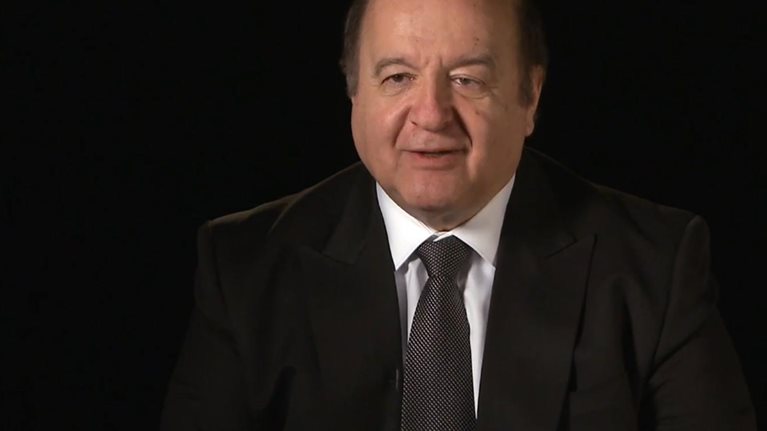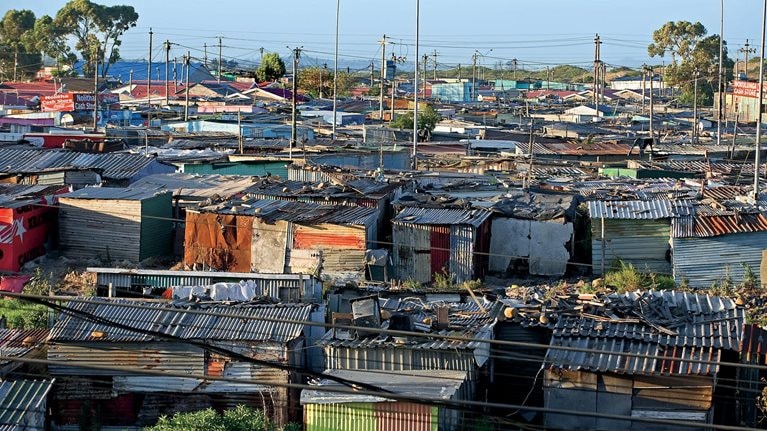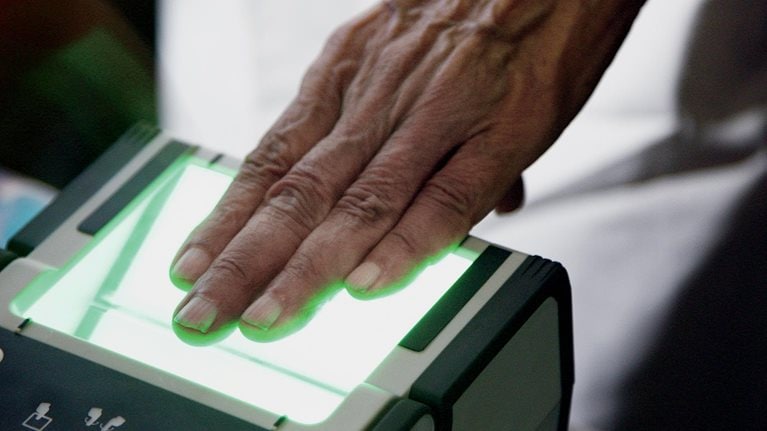McKinsey: Tell us about your mission at ILD and why you think it's so important?
Hernando de Soto: ILD specializes in something very broad—namely, how do you go from having a society where the majority of trade, business, and assets are controlled through customary or unconventional systems, rather than through law? How do you take that society and move it to the rule of law.
Now, that’s something you did, of course, in the United States and Europe, but that was in the 18th and 19th centuries. But that’s where we are today—not in terms of automobiles and all that, because we’ve got the same machines you do. Technology gets shared a lot, but societies can be left behind over time. Or only part of the society moves into the rule of law and the rest is outside, which then means that it’s the rule of law for a few who predominate over the anarchy of the informal economy—the rest of us.
So we’ve learned to move people from one sector to the other on the basis of some very interesting successes in Peru and a couple of other countries. We’re basically 18th- and 19th-century specialists because that’s when this phenomenon happened in the United States and in Europe. In Japan, it happened in the 20th century.
What you have to remember about this is that we are the majority. There are seven billion people in the world, and we who are outside the legal system are five billion. So this is no marginal phenomenon. It’s a big deal. And it applies not only to third-world countries. It also applies to the former Soviet Union, and it applies to Ukraine, which believes that about 75 percent of its economy is outside the legal system.
McKinsey: You're doing some work in the Middle East. What is the situation there?
Hernando de Soto: When the market comes in, it results in a division of labor, and people understand that they can’t just operate at a family level, that they need to collaborate at a broader level. You have to specialize. That’s what the industrial revolution was all about. People become interdependent over large areas. When that happens, it means that they’re ready for the rule of law. That’s happened to all of us who, one way or another, consider ourselves Westerners.
Before the rule of law, you went to your village authorities to settle disputes. When they couldn’t respond anymore, the rule of law came in to replace what the old institutions could no longer do.
And so that’s where we think the Middle East has gone. It has crossed a threshold. There’s no way that it can go back. It has to build, now, the rule of law.
McKinsey: And how do these entrepreneurs get a voice? Is that an opportunity?
Hernando de Soto: The problem is that Western society has a view of what entrepreneurs or business people are. You might identify that view with Wall Street, and the people on Wall Street are not used to a very important insight into third-world countries—specifically, that often the majority of your society is actually made up of entrepreneurs, albeit illegal ones. Albeit poor ones. So these social organizations go in and try to help, for example, the people whom they conceive to be the poorest and the most downtrodden. They say, “We’re out here to help the unemployed.” Well, what if there are no unemployed? In many of these countries I’ve been to, people would say, “These are the unemployed.” Then you’d go and talk to those people, and they’re not unemployed. They’re legally unemployed. But illegally they've got a business.
It’s very simple if you’re poor in a third-world country. If you don’t make an income in the first month, you’re dead in the second month. It’s very hard to be unemployed in a third-world country because life takes place at another level.
McKinsey: I want to go back to the Middle East for a second. What are some signs of progress that you would like to see?
Hernando de Soto: I’d like to see that the political body recognizes that the poor are an enterprising poor. That they’re not the problem; they’re the solution. After the Arab Spring, the United States says, “We’re going to give about another billion or two billion dollars.” And the International Monetary Fund (IMF) says, “We might just do another billion as well.” That already makes three billion. That’s a lot of money. But the value of informal assets in Egypt, in just buildings and land, is nearly $400 billion. That’s 99 times more than the United States and the IMF are promising to give. The poor really are the solution because they’ve built things. But by the way, they’re paperless—that is, outside the legal system. Imagine that they’re on paper.
Let’s say that this office building in New York City is worth $100 million, and I want to buy it. We all agree that $100 million is a good price and we sign a contract, and then I say, “The title please.” And you say, “No title, but all the neighbors know that it’s ours.” How much is it worth then? It might go down to $10 million; it might go down to zero. So all of these assets that we’re talking about are paperless assets. What happens when all of a sudden these assets can be transferred or moved, and you know that when you buy something it involves a transfer of control from the other person to you?
I think the effect is enormous. That’s what the story of the industrial revolution is. So what I would like to see in the future is that everybody stops talking about this as if it’s a charity problem. It’s a social, political, economic transformation issue. It’s the industrial revolution—not understood as chimney stacks, but understood as the moment when human beings decide that they’re not going to live under the feudal system, the patrimonial system, and that the times of the tribes are over.
We are now the good society of the world, and we’re interdependent, and that’s going to bring us a lot of wealth, but we have to deal with one another. I think that the most important thing that can happen in terms of politicians getting together to discuss these issues is that we actually find out what our people are really doing.
Property rights force you to do that. It’s how you create a public memory, because if you don’t know who is where and who owes what to whom, you can’t trace the relationships between people. Nothing works until you know where things are and how you can locate them. In the United States, your memory systems were probably one of the most interesting things that you ever did. And now everything is digital, so you can combine it. You were doing that already with books and print. What you’ve done is you’ve accelerated. You need a public memory. But you see, the big problem is that those who are developed have forgotten where they came from and what great steps they had to take to get to where they are now.
The way I see it is that property creates the interest of people to provide information and to create that memory. That’s the way they’re going to safeguard what they control. You’ve got to put it on record. And once it becomes cheaper to put things on record than not to have them on record, you build up knowledge.


